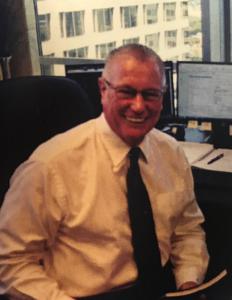A Future without Open Heart Surgery for Many

Dr. Mehran Korsandi co-founder of Advanced Bifurcation Systems
Advanced Bifurcation Systems will present its self-aligning and orienting coronary stenting system at the upcoming Annual Bifurcation Club Meeting in Portugal.
As reported recently, rheir new ABS stenting procedure simplifies the process of inserting stents in arteries. It could allow surgeons to perform the procedure without any specialized training. Dr. Mehran Korsandi is leading the research and his team have used the new method successfully in several clinical trials. He plans to present his findings to some of the world’s leading experts in bifurcation lesions at the XIIIth Annual Bifurcation Club Meeting in Porto, Portugal later this month. Dr. Korsandi developed the system with ABS co-founder Henry Bourang.
Understanding the Process
Stories of overworked and stressed out surgeons are common. With the simplified procedure being proposed by Advanced Bifurcation Systems, these may become less common in the near future. The ABS method allows a surgeon to place stents into both the mother and daughter vessels of a bifurcation lesion at virtually the same time. They’re placed in the arteries using a dual catheter system that lines the stents up more accurately than anything used today.
One of the biggest problems surgeons deal with when trying to open the arteries in a branched system is trying to get the stents to align correctly. This can result in overlaps and gaps that disrupt the flow of blood through the arteries and, in many cases, the stent fails shortly after the surgery. The ABS system eliminates these overlaps and gaps allowing blood to flow normally through the arteries and reducing the need for return visits to the surgeon.
A Step Forward
This new method of operating on blocked arteries has many potentially positive implications. Instead of long waiting lists for open-heart surgery, these procedures can be performed as day surgeries. This means surgeons can spend less time in the operating room allowing them to treat more patients. If the success rate achieved in clinical trials so far is accurate, it will further reduce the time restraints on surgeons.
Long waiting lists aren’t the only problem surgeons face. Any that want to be able to work on bifurcation lesions have to go through specialized training due to the complex nature of the procedure. That means many surgeons simply aren’t qualified to perform the operation. That’s why many patients end up needing open-heart surgery.
The simple ABS procedure would be relatively straightforward for most interventional cardiac surgeons to perform. Specialized training wouldn’t be needed.
A Breath of Fresh Air for Patients
The ABS procedure would also be great for patients. There would be no need to pack an overnight bag, as this method doesn’t require a hospital stay. A patient could be in and out of a medical facility in a matter of hours in better health and ready to resume a normal life.
That’s not the case today. As few surgeons are equipped to operate on bifurcation lesions, most patients end up having to go through open-heart surgery. They often spend weeks in recovery, sometime even months. It’s not a pleasant experience and it often has a negative impact on family life for many patients with serious cardiac issues.
Reducing the Costs to the Medical System
The system itself could also benefit from a simplified procedure like ABS. The CEO of Advanced Bifurcation Systems, Charles Laverty, believes that’s the case. He suggests that by eliminating the need for open-heart surgery, this method could save tens of thousands of dollars or more on every patient. That’s a staggering number and it would reduce the financial costs on the system.
Hundreds of thousands of open-heart surgeries are performed every year. That means the ABS procedure could save the system millions. Those funds could be used to improve patient care in other ways and reduce the stress on the system.
A Day Instead of Weeks
Extended hospital stays are a major burden on medical systems. By eliminating the need for open-heart surgeries, this procedure would reduce their occurrence and free up hospital beds for other patients. It could mean the end to patients waiting on stretchers in hallways for an available bed. Each night a patient has to spend in a hospital bed is a financial burden on an already strained system. The costs savings from fewer open-heart surgeries would reduce this strain.
Greater Success Rate
Avoiding repeat visits to the cardiac surgeon because of failed stents would benefit the patient and the doctor. The self-aligning ABS system has the potential to make that possible. The cost savings for medical systems around the globe would be a welcome development.
A Future Without Open-Heart Surgery
Advanced Bifurcation Systems is preparing its application for FDA review. In the meanwhile, the company announced upcoming human trials in New Brunswick, Canada.
Charles Laverty
Advanced Birfurcation Systems
(949)432-4824
email us here
Legal Disclaimer:
EIN Presswire provides this news content "as is" without warranty of any kind. We do not accept any responsibility or liability for the accuracy, content, images, videos, licenses, completeness, legality, or reliability of the information contained in this article. If you have any complaints or copyright issues related to this article, kindly contact the author above.

